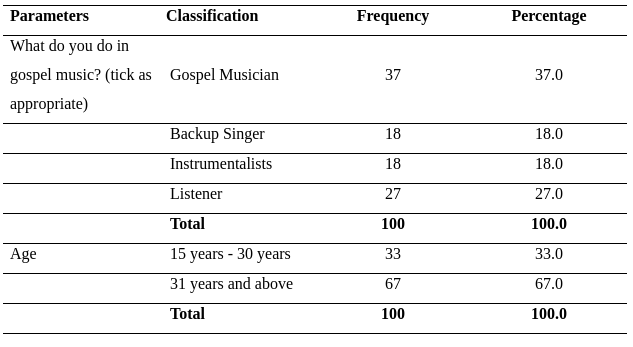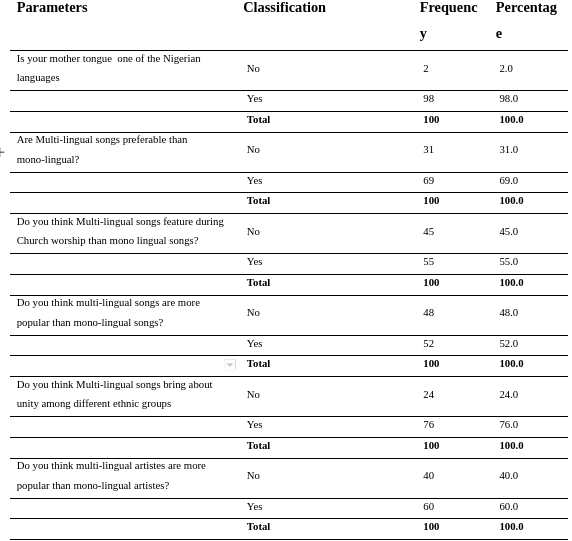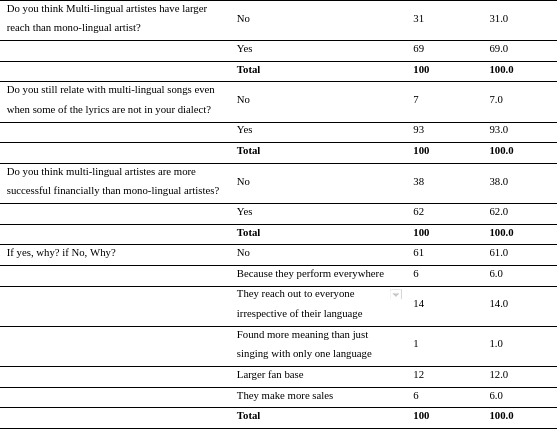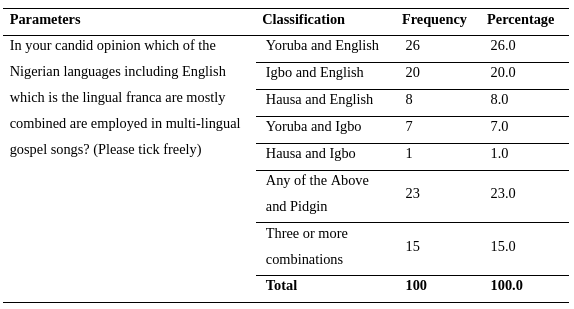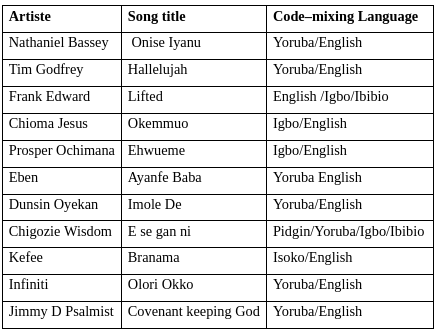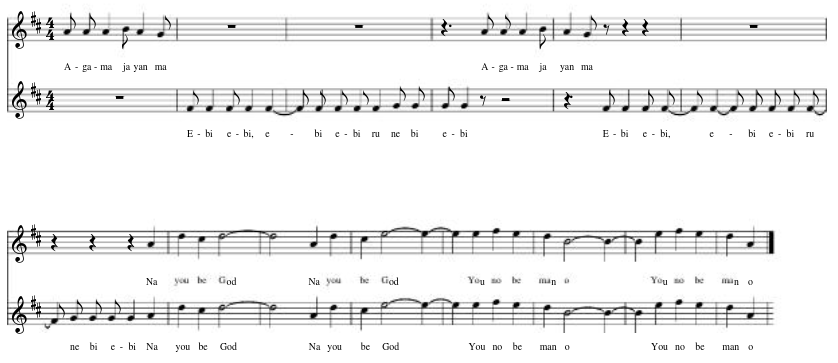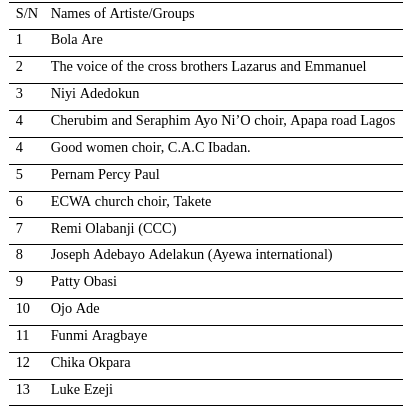UDC: 783.2(669.1) COBISS.SR-ID 59565577 CIP - 2 _________________
Received: Jan 15, 2022
Reviewed: Jan 27, 2022
Accepted: Feb 08, 2022
#2
THE IMPACT OF THE USE OF CODE-MIXING IN NIGERIAN GOSPEL MUSIC
Emmanuel Oyetunji Alemede
Department of Music
Federal College of Education, Eha-Amufu, Enugu state, Nigeria
[email protected]
[email protected]
Department of Music
Federal College of Education, Eha-Amufu, Enugu state, Nigeria
[email protected]
[email protected]
|
Citation: Alemede, Emmanuel O. 2022. "The Impact of the use of Code-Mixing in Nigerian Gospel Music." Accelerando: Belgrade Journal of Music and Dance 7:2
|
Abstract
This paper aims to evaluate the performance and development of the gospel music industry in Nigeria. It investigates the following assumptions: (i) multilingual songs are more popular than mono-lingual songs; (ii) multi-lingual music bring about unity among different ethnic groups; (iii) multilingual artistes are more popular than mono-lingual artistes, and (iv) multilingual artistes have a greater reach than mono-lingual artistes. Primary data were obtained through a structured questionnaire administered online. Secondary data were collected from national and international journals and books. Data from the survey was analyzed using descriptive statistics of means and standard deviations. The result shows that artists whose songs are multilingual accomplish more in terms of personal development and monetarily. It was also discovered that artists who sing multi-lingual songs have a greater reach than mono-lingual artists. In uniting various ethnic groups, they make their tunes vital, and they gain more attention than artists whose songs are mono-lingual. The paper concludes that as a multilingual song has a great positive effect on the artist, their audience, building a bridge across the divide, and accelerating the growth of the gospel music industry. Hence, the gospel artist should create more multilingual songs.
Keywords: Gospel music, Christian Music, Cultural-divide, multi-lingual artists, bilingual/multilingual gospel tunes, code-mixing, Yoruba, Igbo and Hausa |
|
References
|
This website is under Attribution-NonCommercial-NoDerivatives 4.0 International (CC BY-NC-ND 4.0)
Belgrade Center for Music and Dance is the publisher of Accelerando: BJMD
Belgrade Center for Music and Dance is the publisher of Accelerando: BJMD


